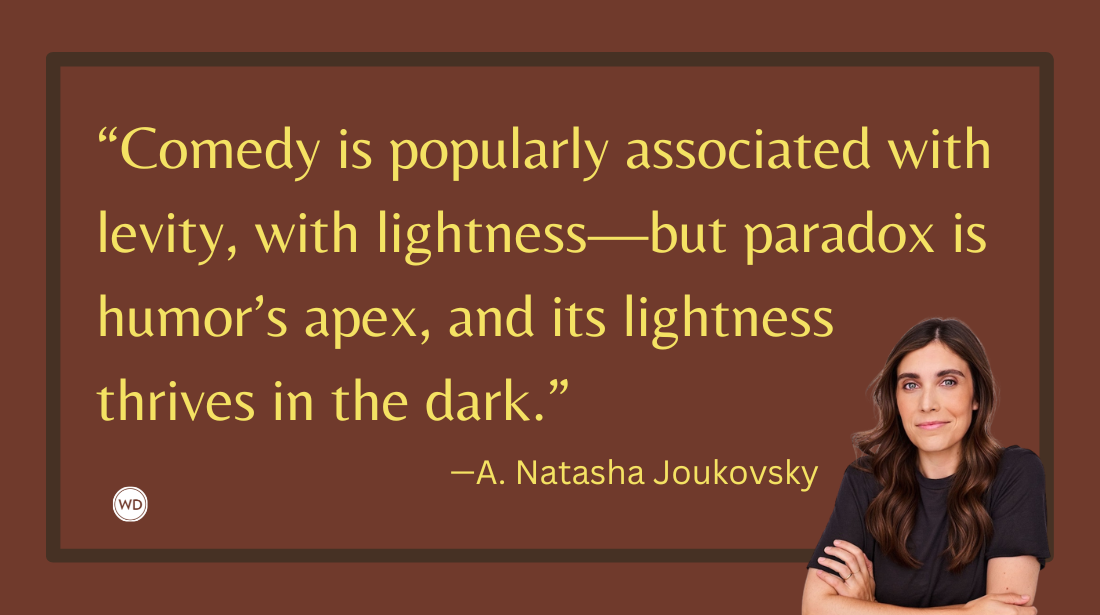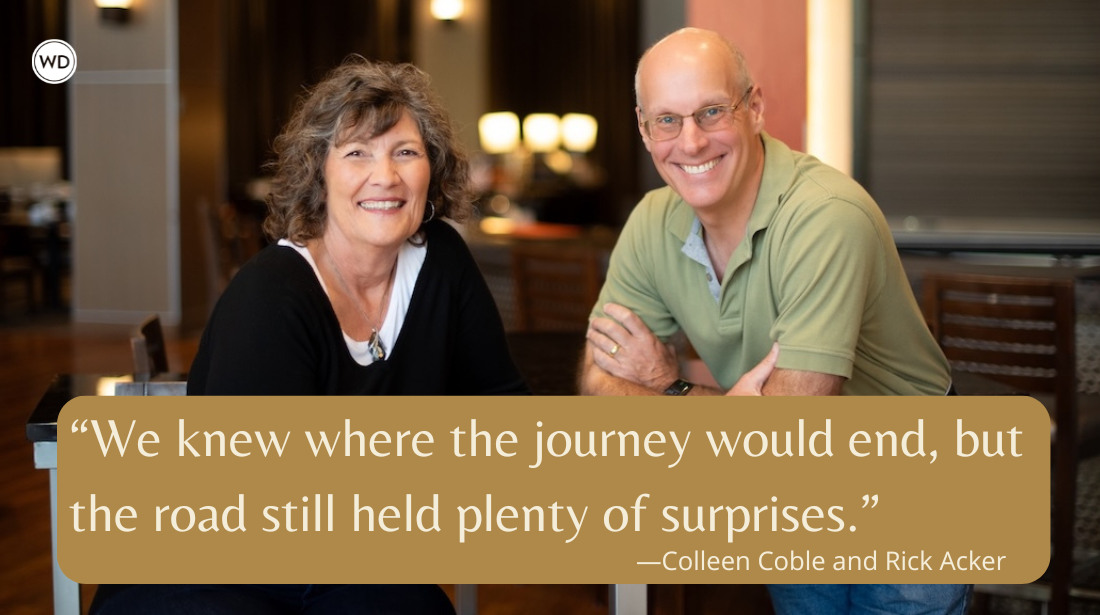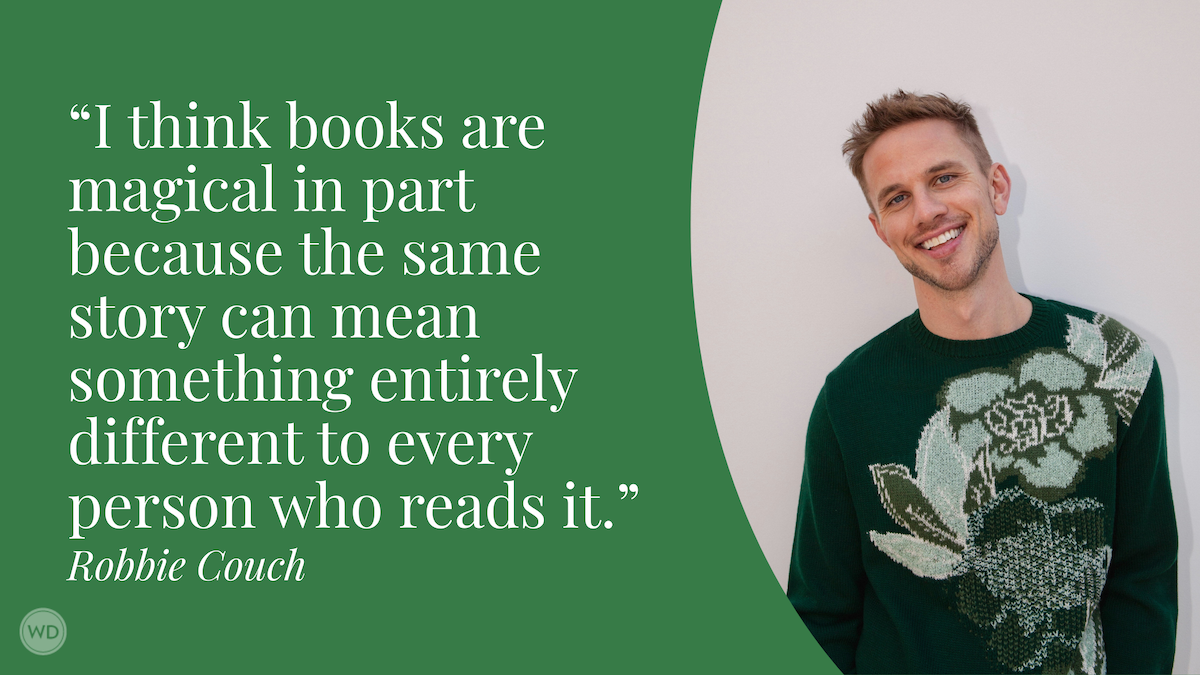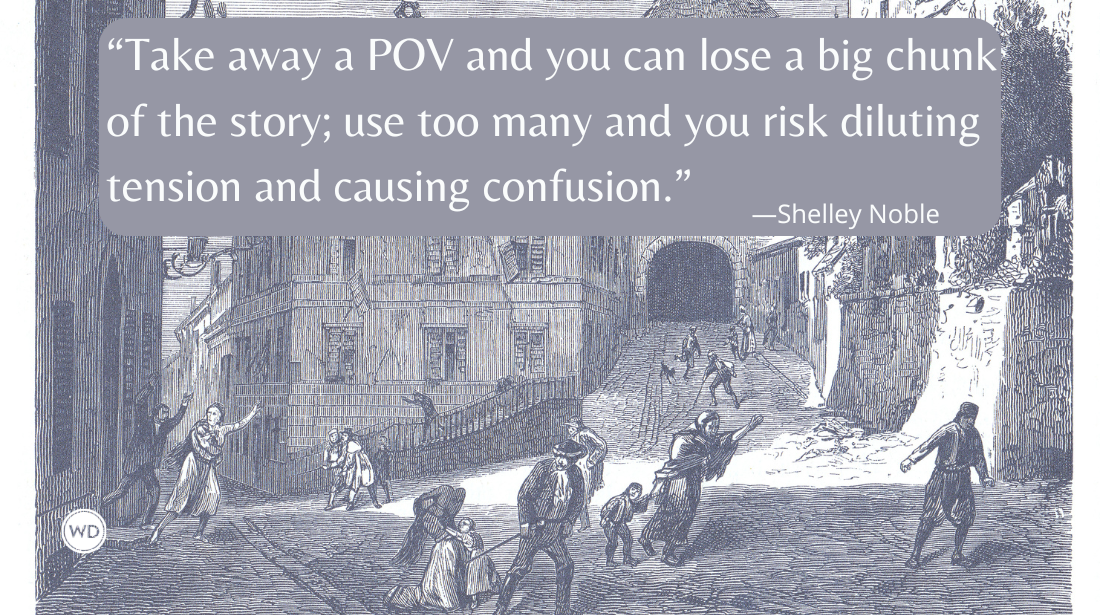Almost Antihero: 4 Tips on How to Keep a Flawed Protagonist Human
Author Matt Riordan shares four tips for writing effective antiheroes that are flawed protagonists readers can still root for.
Is your protagonist square jawed? Loyal? Do his teeth gleam like Chiclets? Does he utter nary a profane word? Then I’m bored on the first page and probably done by the 10th. On the other hand, is he a cynic with a pack-a-day habit? A suspended license? Does he write checks that bounce? If so, I’ve got time for him, especially if, despite his poor personal choices, he is engaged in exposing some greater truth.
Most of my favorite literary characters could be classified as antiheroes, but I find crafting one to be a tricky business. A compelling antihero walks the knife edge between authentic and repellent, and which side of the line they land on is ultimately the subjective judgment of every reader. Having said that, I think all but the most sensitive readers will forgive a slew of personal failings in a character who, intentionally or not, serves some greater purpose.
By way of background, an antihero is a protagonist who lacks the attributes we usually associate with heroism—qualities like idealism, honesty, and courage—yet somehow manages to be a hero anyway. Antiheroes often inhabit the fringes of society, toiling in disreputable professions, making their living as spies, journalists, or private investigators. (Writers are also a popular choice.)
The personal life of an antihero is typically rocky. Sex, alcohol, and nicotine are common pastimes. Holden Caulfield was a smoker, as well as a whiny adolescent who got kicked out of a number of fine schools. Sam Spade was greedy and slept with his partner’s wife. Moshfegh’s antiheroes booze, drug, and repel with nearly every sentence. We root for all of them anyway—at least I did—because at some level, they were right all along. Holden was right to criticize all the damn phonies. Sam Spade in The Maltese Falcon understood that his partner’s killer had to go to jail, even if it was inconvenient for him. Moshfegh’s heroines insisted on facing the meaningless nature of life. To paraphrase a famous description of fiction, an antihero is a liar who nonetheless speaks the truth.
While the very existence of the antihero points up some greater truth, they are not overtly idealistic. World-weary nihilism is more their bag. Is your protagonist dedicated to returning America to the moral and social order of some hazy period in the middle of the last century? Not an antihero. Likewise, if the protagonist of your campus novel is bent on decolonizing the dining hall fixings bar because mayonnaise is a condiment of oppression, your character is not an antihero. Does she roll her eyes and light a smoke every time someone starts to preach? Bingo. So, whether your protagonist lives outside the hypocrisy of conformist church lady morality, or the preening victimhood of online social justice, the key is their rejection of the prevailing societal norm.
I’d like to think of some of my characters as antiheroes, and I try to keep them just this side of repellent. After all, mustache-twirling villains make for boring reading as well. Here’s a few of my thoughts on how I try to keep my characters from straying over the line from antihero into the territory of garden variety douchebag.
Let them be funny.
This probably saved Holden Caulfield. All-knowing adolescents are more or less the enemy of mankind, but even they can be saved by a well-placed and funny line. A joke or wry observation humanizes morally challenged characters, especially if the joke is of the self-deprecating variety.
Let them be vulnerable.
One of my favorite reads so far this year is Rachel Kushner’s Creation Lake. The main character and antihero, Sadie, is a steely woman of action when the situation calls for it, but she also harbors regret and doubt about her life of treachery. Her occasional reflections on her past and the choices she made go a long way toward redeeming her otherwise amoral character.
Let them be honest, if only to themselves.
Maybe they’re in it for the money, or the sex, or the next drink—all of which is fine, as long as they don’t lie to themselves about it. They can deceive everyone else, but if a character believes their own bullshit, I think they edge closer to a one-dimensional black hat bad guy.
Let them serve a higher purpose.
For me, this is the crucial characteristic, and the toughest to craft. I think effective antiheroes live outside of, or in opposition to, some societal consensus, be it religious, moral, or otherwise. Or, more subtly, whatever the antihero experiences over the course of the novel drags some corruption or hypocrisy into the light.
Hemingway’s Jake Barnes drank and fought across a Europe because a high-minded war had robbed him and his generation of most of their reasons to believe in anything. Patricia Highsmith’s Tom Ripley is surely a vicious psychopath, but also a product of his upbringing and the corrupting influence of idle wealth. Sometimes the antihero holds up a belief or institution for explicit ridicule, and sometimes the connection is left unsaid, but the very existence of the antihero should serve some higher purpose, if only by accident.
Check out Matt Riordan's While the Getting Is Good here:
(WD uses affiliate links)









